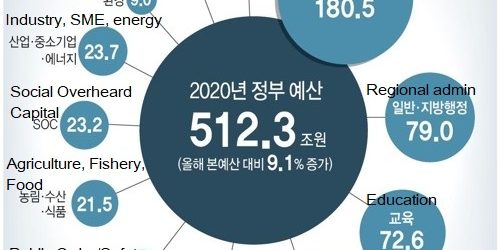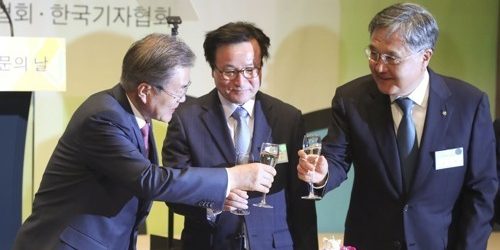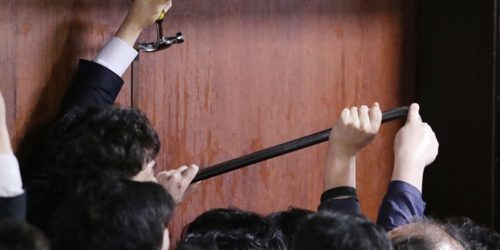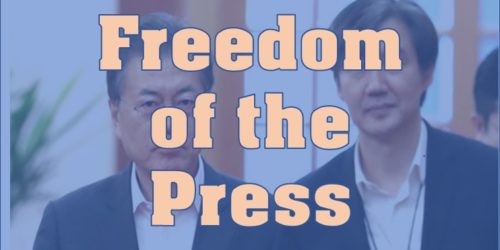Blue House Suspected of Manipulating the 2018 Election in Ulsan and Elsewhere using Police Investigations, a Key Witness is Found Dead, Investigation of Blue House Involvement Ongoing
2019-12-7, Tara O
A former Blue House inspector Baek Jae-young (백재영) was found dead on December 1, 2019 just hours prior to the time he was due to appear at the prosecutor’s office to answer questions. He was a key witness in the ongoing investigation about the alleged Blue House manipulation of the election in Ulsan Metropolitan City in 2018.
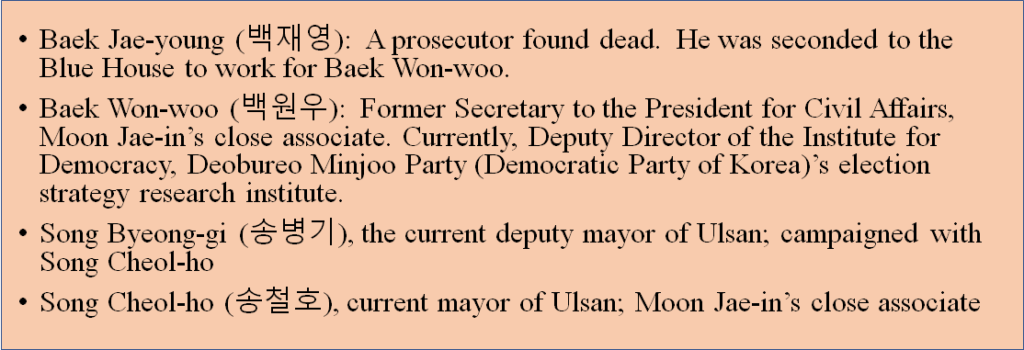
The Blue House’s informal investigation unit “Byeoldongdae,” its creator Baek Won-woo, and Baek Jae-Young’s death
Baek Jae-young, a prosecutor, was seconded to the Blue House, and worked under Baek Won-woo (백원우) (the same last name, but not related) during the time when the Blue House is suspected of ordering an investigation against the Ulsan mayor Kim Gi-Hyeon (김기현), Liberty Korea Party, during Kim’s mayoral election campaign in 2018. The grounds for this investigation appear questionable, and while Kim Gi-Hyeon was ultimately found innocent, the investigation appears to have prejudiced voters against Kim, who was ahead in the polls prior to the investigation, and played a role in his defeat. Other conservative mayoral candidates in the province faced similar criminal investigations.
Following Moon Jae-in’s election as the president in 2017, Baek Won-woo, who was then appointed the Secretary to the President for Civil Affairs, created an informal inspection unit called Byeoldongdae (별동대), which means “partisans” or “detached force.” Baek Jae-young worked in this unit. The Byeodongdae unit had no authority to direct or supervise local regional investigations. Baek Won-woo’s office is under the Senior Secretary to the President for Civil Affairs office headed by Cho Kuk, who has been the center of a scandal involving a myriad of illegal, unethical, and anti-state activities. (See here for more on Cho Kuk.) Baek Won-woo is also a close associate of Moon Jae-in. When Baek Won-woo, Deobureo Minjoo Party (Democractic Party of Korea), ran for the National Assembly in 2016, Moon appeared in person to support him, saying “My candidate Baek Won-woo is Roh Moo-hyun’s comrade, and Moon Jae-in myself’s very long-known comrade.”
In May 2019, Baek Won-woo left the Blue House. He is currently the Deputy Director of the Institute for Democracy (Deobureo Minjoo Party’s think tank that focuses on how the party can hold onto power), which signed an agreement with the Chinese Communist Party’s Central Party School on July 10, 2019. He is suspected of playing a key role in the election meddling case, as well as other scandals, including illegal civilian monitoring.
The prosecutors believe that Inspector Baek Jae-young went to Ulsan in January 2018 in order to personally keep track of the investigative information and progress of the investigation against Mayor Kim Gi-Hyeon. Baek Jae-young had since returned to the Prosecutor’s Office, but as the investigation about the Blue House’s election meddling heated up, he became a witness.
Baek Jae-young’s death, only a few days after the death of another key witness related to Cho Kuk’s Private Equity case, has shocked the country and raised questions about what led to their deaths.
Kim Tae-woo (김태우), a colleague of the deceased Baek Jae-young, expressed his sorrow at the death of his colleague and anger at the current administration, asking why so many people are dying under this administration. (1:03) Kim is also a former prosecutor, who was also seconded to the Blue House, and became a whistleblower a year ago, when he exposed that the Blue House had conducted illegal monitoring of private citizens and government/quasi-government officials, among other revelations. Instead of investigating the allegations against the Blue House, the government investigated Kim Tae-Woo.
Blue House suspected of meddling in the 2018 election [하명(下命)수사·선거개입 의혹]
On June 13, 2018, there were nation-wide local elections in South Korea. Four opposition candidates running for offices in the city of Ulsan and elsewhere in South Gyeongsang Province were investigated during the campaign–one committed suicide and two lost their elections. Three of Moon Jae-in’s associates, including two close associates, won, becoming mayors.
Map of Ulsan, Yangsan, Changwon, Sacheon
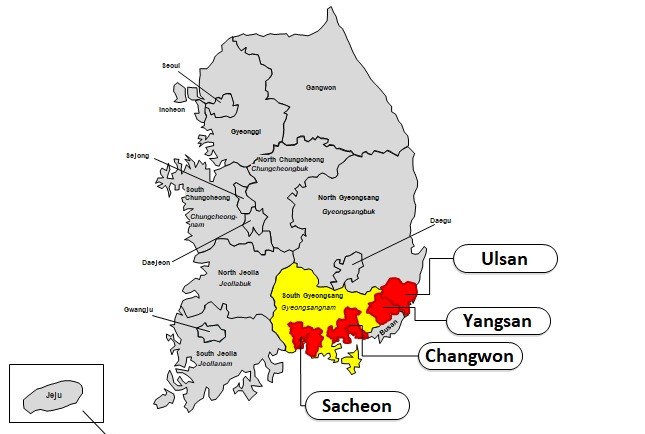
Ulsan Metropolitan City
The Blue House is suspected of directing an investigation during the crucial election campaign period against then-mayor Kim Gi-Hyeon of the main opposition party Liberty Korea Party, who was running for re-election in Ulsan Metropolitan City. Kim was ahead in the polls, but after the investigation began, negative news about him continued. Kim lost the election, and Moon Jae-in’s close associate of 30-years Song Cheol-ho (송철호), Deoubreo Minjoo Party, won the election. Kim was found not guilty, but it was not until after the election was over. (1:20)
The investigation of Kim began when the Blue House provided a “tip” of alleged misconduct, and the Blue House then appeared to monitor the investigation. The investigation was conducted by the Ulsan police, headed by Hwang Woon-ha (황운하). In July 2017, Hwang Woon-ha (황운하) was appointed as the new head of Ulsan City Regional Police Agency (Hwang is currently the new chief at Daejeon City Regional Police Agency), and replaced his predecessor before his term expired. He soon replaced the personnel in the investigation team, and three months before the local election in 2018, began investigating then-mayor Kim Gi-hyeon (김기현), Liberty Korea Party, who was running for re-election. The press carried the stories of allegation for three months continuously, and Kim lost his seat as the mayor. (4:54) Song Cheol-ho (송철호), Deobureo Minjoo Party, won the election.
[Note: Hwang Woon-ha, the former head of the Ulsan police, is currently under investigation for threatening associates of former mayor Kim Gi-hyeon. Hwang said “if this case (investigation of Kim) goes well, then I can also benefit.” Hwang expressed his desire to run for the National Assembly in next year’s election, and sought to retire from the police, but the retirement was disallowed as he is currently undergoing an investigation.]
The prosecutors stated that the local Ulsan police reported to the Blue House eight times on the status of the investigation, including when the search and seizure of then Mayor Kim’s office would occur.
Baek Won-woo’s office, however, does not have authority over local investigations, so it should not have received the investigation progress report as if it were directly supervising it. In fact, the President’s Chief of Staff Noh Young-min (노영민) made it clear that the Secretary to the President for Civil Affairs office’s role was something other than to investigate or supervise the local investigations during a hearing at the National Assembly on November 29, 2019, when National Assemblyman Kwak Sang-do (곽상도), Liberty Korea Party, asked about two personnel under Baek Won-woo visiting the Ulsan police to get situation updates on the investigation of former Mayor Kim Gi-Hyeon. (1:18) Noh said there is something called “Byeoldongdae,” but emphasized that it consists of “two personnel in the office of the Secretary to the President for Civil Affairs and they are for handling special associates of the president and president’s relatives. (1:40) However, insider’s testimony stated that “Byeoldongdae was an abnormal organization that clearly existed and had a lot of problems,” and it was a separate unit from the office that handles the President and his relatives and associates.
It turned out that Song Byeong-gi (송병기), the current deputy mayor of Ulsan, who campaigned for the current mayor Song Cheol-ho (송철호), provided the “tip” to the Blue House. His story as well as the Blue House’s story changed over time and are inconsistent.
Initially, Song Byeong-gi said at a press conference that he happened to tell a Blue House official about an “allegation against former mayor Kim” during a courtesy phone call. (15:08) Two days prior, however, Song Byeong-gi told KBS, a public broadcaster, that the central government requested information, so he probed into it and passed on the information, which means the Blue House contacted him for him to provide information, not the other way around. (15:15) Song Byeong-gi’s press conference was short (1 minute 30 seconds) and he did not take any questions from the press. As Song left for the elevator, the reporters yelled out questions “Why did you inform the Blue House official about Mayor Kim Gi-hyeon’s situation? Did the Blue House first ask you to provide Mayor Kim Gi-hyeon’s information?” (4:42) Song Byeong-gi did not answer. Additionally, there are inconsistencies between his claim and the Blue House’s explanation. For instance, the Blue House Presidential Spokeswoman Go Min-jeong stated on December 4, 2019 that a Blue House official Mr. “A” received the “tip” via “smartphone SNS” (social network service) (6:09), but Song Byeong-gi stated that he provided the information during a phone call with Mr. “A.” (6:26)
Song Cheol-ho, who won the Ulsan mayoral election, is one of Moon Jae-in’s closest friends. In fact, Moon campaigned for Song in 2014, when Song ran as an unaffiliated, although there was a candidate from Moon’s own party, New Politics Alliance for Democracy (predecessor to Deobureo Minjoo Party). Cho Kuk also supported Song in his election campaign in 2014. A Deobrueo Minjoo Party lawmaker said “Since President Moon was so interested in the elections in Busan, Ulsan and South Gyeongsang Province regions, not only the party leaders, but also pro-Rho Moo-hyeon and pro-Moon Jae-in National Assembly lawmakers all were mobilized.”
Song ran for different offices eight times in 26 years and lost each time, until the 2018 local election, when his opponent and incumbent Kim Gi-Hyeon was heavily investigated by the police, with the Blue House closely involved.
The court found Kim Gi-Hyeon not guilty. In the court’s decision document, it showed that despite the lack of evidence, which would certainly lead to a not guilty verdict, the investigative authorities still prosecuted the case anyway. (4:43) It also stated that the “investigative authority did not fulfill its duty by the flippant way of indicting (Kim)…especially when controversies arose about its investigative fairness, political impartiality, and the abuse of authority.” (4:45)
Election manipulation elsewhere
The investigations of opposition party candidates occurred not only in Ulsan City in South Gyeongsang Province, but also in other cities in the same province. The investigations began soon after the opposition party candidates announced their intention to run for offices. Furthermore, the investigations were conducted after the police chiefs were replaced before the normal assignment duration.
As in Ulsan Metropolitan City, the police chief was replaced first at South Gyeongsang Province, and before what appears to be politically-driven investigations began. In December 2017, six months before the local elections, Lee Yong-pyo (이용표) was appointed as the head of South Gyeongsang Provincial Police Agency, replacing Police Commissioner Won Kyung-hwan (원경환). Commissioner Won Kyung-hwan suddenly resigned before the term of one year, which is unusual.
[Note: as a “metropolitan” city, Ulsan is at the provincial level, thus not administratively under South Gyeongsang Province; however, other cities discussed below–Yangsan, Changwon, and Sacheon–are smaller cities and fall under the jurisdiction of South Gyeongsang Province.]
Yangsan City, South Gyeongsang Province
After Lee Yong-pyo became the new police chief of the South Gyeongsang Province, police began investigating opposition political candidates. Three months later in March 2018, the police raided Yangsan (양산) City Mayor Na Dong-yeon’s (나동연) office and investigated him. Na, Liberty Korea Party, was running for his third term as the mayor. The police investigated him for the “use of operational expenses” after a challenger, Kim Il-kwon (김일권), Deobureo Minjoo Party (Democratic Party of Korea), made accusations and reported him. Kim Il-kwon ended up winning the election.
When Kim Il-kwon ran for an office in 2014, Moon Jae-in (then National Assemblyman, now the president), Kim Kyung-soo (김경수) (then National Assemblyman, currently South Gyeongsang Province mayor, who is free on bail for the “Druking” opinion rigging scandal), and Song In-bae (송인배) (former First Secretary and the Government Secretary at Moon’s Blue House) supported Kim, appearing at Kim Il-kwon’s election office. Kim is considered a close associate of Song In-bae, and Song is known as the “personal butler to the President” (대통령의 ‘개인 집사’).
Changwon City, South Gyeongsang Province
The Liberty Korea Party nominated Jo Jin-rae (조진래) to run for the mayor of Changwon (창원) City. On the day of his nomination, South Gyeongsang Province Police Agency summoned Jo, saying there was a suspicion of “employment corruption.” Jo was placed under investigations during the election campaign, and lost the election. Huh Sung-moo (허성무) of Deobureo Minjoo Party, who was the Blue House Civil Affairs System Innovation Secretary under Rho Moo-hyun, won the mayorship.
Jo Jin-rae committed suicide in May 2019, almost a year after the election, after enduring likely unfair police investigations.
Sacheon City, South Gyeongsang Province
Song Do-geun (송도근), unaffiliated, was the mayor of Sacheon City, and was running for re-election. He joined the Liberty Korea Party in December 2017. Soon after (January 2018), the police investigated Song for alleged bribery, searching and seizing Song’s office and vehicle. Song was re-elected in the June 13, 2018 elections, but barely, after experiencing much distress from police activities, including an arrest warrant to put him in jail, which was rejected by the court. The court also found the contractor not guilty of bribing Mayor Song.
The Liberty Korea Party, in March 2018, complained that everytime they nominate candidates in South Gyeongsang Province, the police investigate the candidates. It had a chilling effect, as some potential candidates did not want to be nominated because of fear of politically-motivated investigations.
What could halt or interfere with the prosecution’s investigations in the alleged Blue House’s manipulations of the elections?
The prosecutors are diligently working on this and numerous other allegations that the Blue House faces. What could halt this process is 1) if National Assemblywoman Chu Mi-ae (추미애), Deobureo Minjoo Party, becomes the Justice Minister or 2) if the Gongsoocheo Act becomes a law.
Chu Mi-ae has been a loyal supporter of Moon Jae-in. When netizens (citizens on the internet) began referring to Moon Jae-in as “Moon Jae-ang” (“Jae-ang” means disaster), Chu said it is certainly a crime, called it “fake news,” and threatened the netizens with “stern prosecution,” as well as to “quickly establish legal devices to punish” them. She also shares Moon’s vision of South Korea’s economic system. Chu announced to the press her support for “China’s style of land ownership,” in which “the state owns the land and ‘inmin’ use the land.” [Note: “Inmin” is communist terminology in Korean for a specific type of “people”–one that does not include landowners, capitalists, intellectuals, business owners and clergy.]
After Moon nominated her to be the Justice Minister, Chu said “I understand only too well the message of President Moon Jae-in.” The Justice Minister has the authority to direct and supervise prosecutors. While she will not be able to replace Public Prosecutor General Yoon Seok-ryul (윤석열), she can reassign and replace the prosecutors and support personnel investigating the Blue House, as well as take away resources, which are what Cho Kuk began to do during his one-month tenure as the Justice Minister, until he resigned.
Another potential dilemma is Gongsoocheo (investigative organization for senior officials). The ruling Deobureo Minjoo Party and several smaller parties have placed the Gongsoocheo Act on a fast track at the National Assembly. If it passes, it will create a Gongsoocheo organization under the president, which gives the president the power to investigate prosecutors and judges, with no checks and balances. It is akin to the Ministry of State Security in North Korea, and a tool to create fear and control. Currently, the main opposition party, Liberty Korea Party, is conducting a filibuster to try to halt the passage of the Gongsoocheo Act. For more on Gongsoocheo, see here and here.
Implications
One of the pillars of a liberal democracy is free and fair elections. The election process needs a high-level of transparency and credibility to ensure that it is free and fair. Not only does election manipulation produce an outcome that is different than the wishes of the voters, but it also creates an atmosphere of fear, discouraging potential candidates and political activity in general. That such oppression is occurring in modern South Korea is appalling and worrisome. If the Blue House is found to have manipulated the elections, it is a clear violation of the laws as well as an attack on South Korea’s liberal democracy itself.
